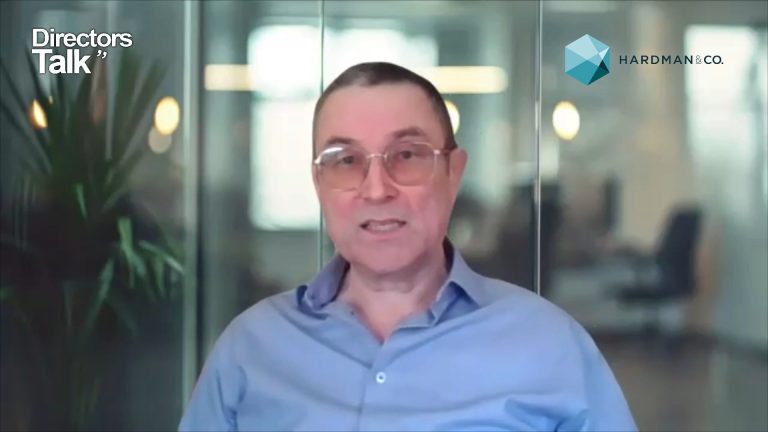Pantheon International plc (LON:PIN) is the topic of conversation when Hardman and Co’s Analyst Mark Thomas caught up with DirectorsTalk for an exclusive interview.
Q1: Your recent report sits behind a disclaimer. What can you tell us about that?
A1: It is just the standard disclaimer that many investment companies have. In essence, for regulatory reasons, there are some countries (like the US) where the report should not be read. In the UK, private equity (PE) is seen as a complex investment, and the report is targeted at professional/qualified investors.
Q2: So, you called your note Financing entrepreneurship, innovation and growth. What can you tell us about it?
A2: Helen Steers, Partner and Manager of Pantheon International, joined Hardman & Co for an open forum discussion about the role of PE in financing entrepreneurship, innovation and growth. The presentation highlighted that, even in a difficult period, PE is well-positioned because it adds value to its investee companies, with hands-on operational and sector-specific expertise, exercised with good governance and aligned interests. It is much more than capital support. PIN gives privileged access to carefully selected PE investments globally and has delivered long-term outperformance.
Q3: It sounds as if the key theme is that PE is growing more strongly than public markets, because it is adding value to its investee companies, and that this is why it is creating jobs and economic growth?
A3: That is exactly the key theme, and, if it’s OK, I’ll take a bit of time to explain it. PE’s superior performance is achieved through active management. PE managers now invest hugely in central resources to support their investee companies. It is not uncommon for a PE manager to have 100 investment professionals finding opportunities supported by 100 operational improvement staff. In the current climate of geopolitical, late-cycle and inflation risks, and diverging sector and intra-sector trends, this support has never been more needed. The reason PE is growing strongly is that it adds value through this support, in addition to its long-term view (holding for five years – so with “moats” around risks), diversification and focus on growth. Helen saw five characteristics helping to navigate the environment:
o being flexible and nimble, and so able to take advantage of opportunities as they arise;
o sector specialists, with proven strategies in target segments;
o operational expertise and experience in improving businesses;
o good governance and control over decision-making; and
o strong alignment with company management.
Q4: Can you give some practical examples of that support?
A4: PE is helping the economy evolve and adapt through enhanced digitalisation, go-to-market strategies and improved supply chain management. By way of example, Helen cited Olaplex, a US-based prestige haircare brand, which, pre-pandemic, supplied products almost exclusively to hair salons. When these customers had to close, due to lockdowns, it pivoted to digital distribution through the likes of Amazon, and now the majority of sales are online. This move was driven by the skills of its PE backer. Looking at where tech-enablement is creating disruptors across other sectors, PE offers niche investments that are under-represented on public markets in areas such as i) the switch from cash to cards and digital payments, ii) automation of core business processes, such as invoicing, iii) big data collection and analytics, iv) collaboration through digital tools, v) migration of computing to the cloud, vi) the move to e-commerce, vii) cybersecurity and data protection, viii) the shift to remote working, and ix) the use of artificial intelligence (AI).
Q5: And where does Pantheon International fit into this landscape?
PIN, the investment trust, floated in 1987, and has net assets of £2.4bn. It invests in private companies globally, with a focus on delivering sustainably high returns through an actively managed portfolio. 45% of the portfolio is invested directly in companies (via co-investments and through single-asset secondary investments) and the balance in funds. It favours the mid-market buyout space, and, overall, has a geographically and sectorally diversified portfolio, with the largest sectors being IT and Healthcare. PIN has delivered long-term outperformance: 12.1% annualised NAV growth since 1987 and an 83% total shareholder return (TSR) over five years, and well ahead of the FTSE All-Share total return over one, three, five and ten years, and since inception.











































